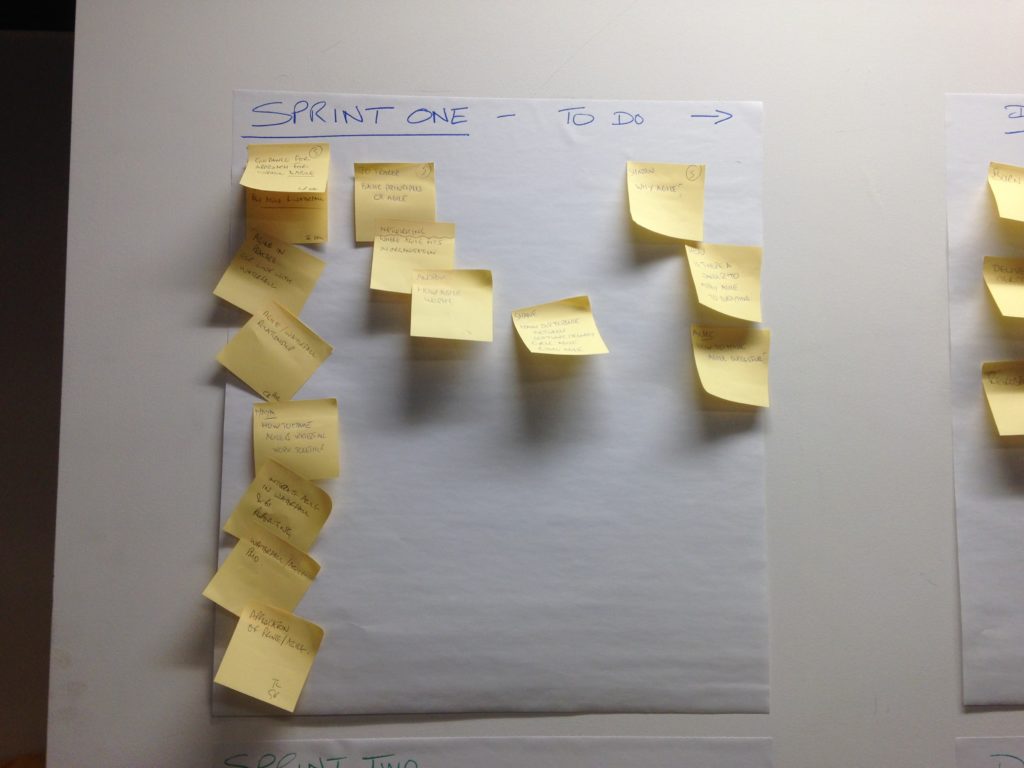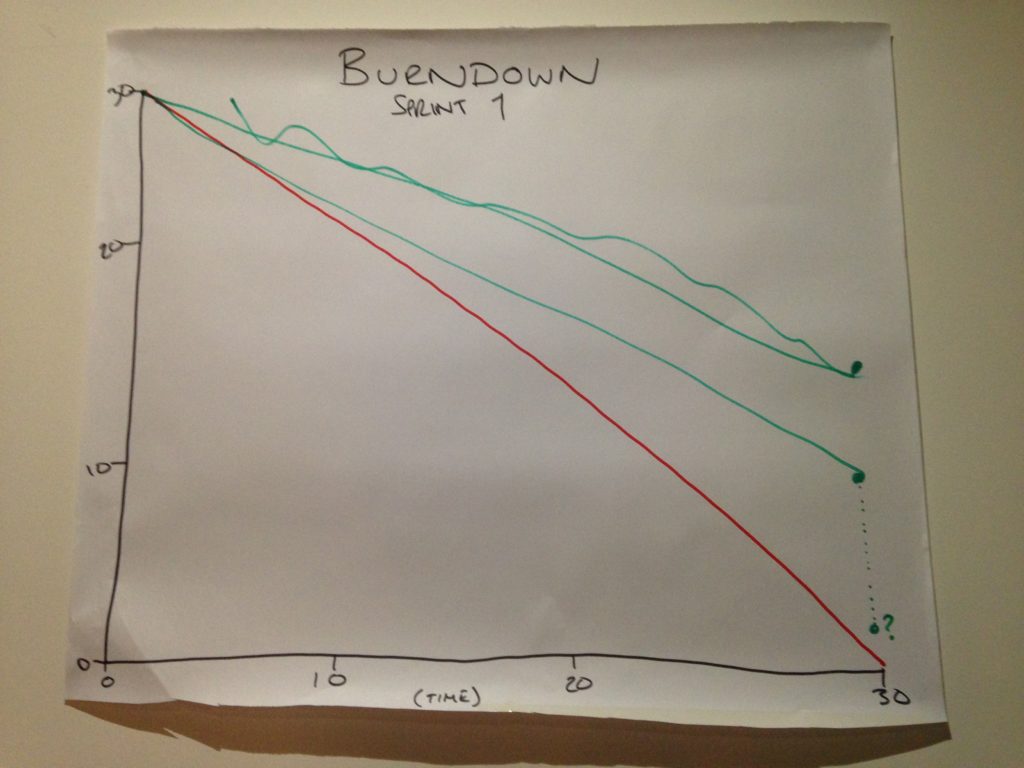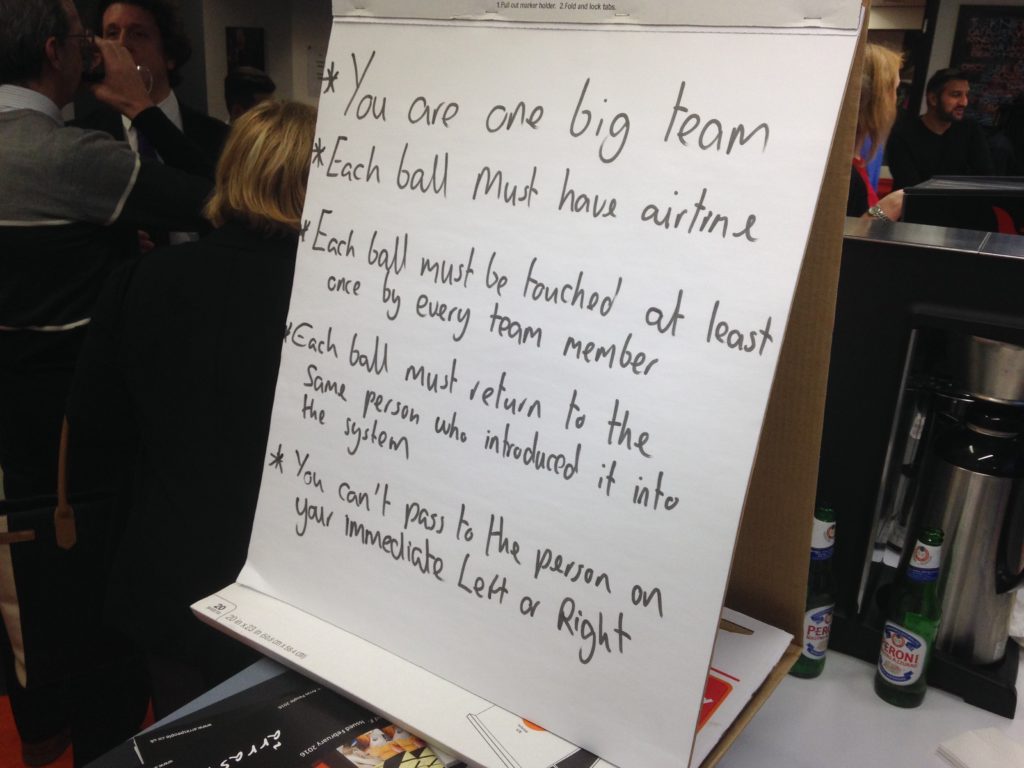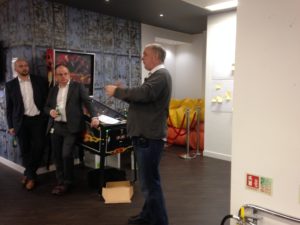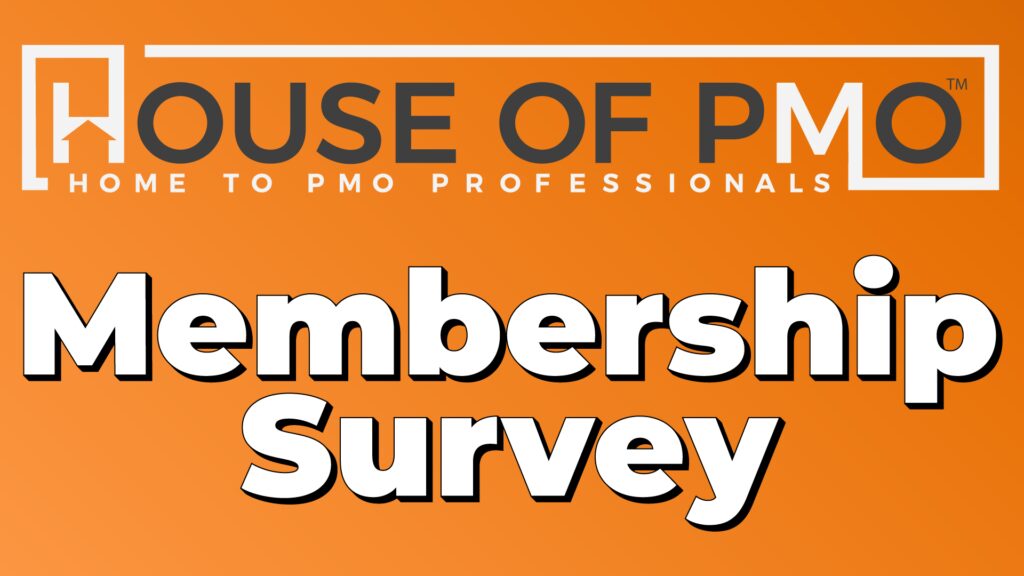You can find all our articles and past events
Free Articles | Inside PMO | PMO Conference | PMO Book Shelf
PMO Mini-Masterclass: Agile PMO in Practice
The PMO Mini-Masterclass on the Agile PMO in Practice was all about learning from another organisation’s PMO – Ticketmaster International – and how they support Agile projects within their business.
The session was held at Ticketmaster in London and was carried out by John McIntyre, Head of PMO supported by his PMO team members.
The full presentation
- Understanding the main principles of Agile projects – what constitutes an Agile project, which core processes and techniques are in play
- The role of the PMO in supporting Agile projects – what changes were needed within the PMO, what skillsets and knowledge people within the PMO needed; how the PMO provides governance of these projects and what will be needed in the future.
There wasn’t a Powerpoint presentation as this session was delivered in an Agile way, complete with sprints, backlogs, retrospectives and burndown charts.
The Video
The video is 1 hour and 14 minutes long:
Tools Recommendations
Ticketmaster use Atlassian Jira for Scrum boards and burndown charts which Gartner positioned as a ‘Market Leader’ in their 2015 Magic Quadrant research into Application Development Lifecycle Management. Link here: https://confluence.atlassian.com/agile/jira-agile-user-s-guide/jira-agile-tutorials/tutorial-tracking-a-kanban-team.
If people want to experiment with something for free, then http://www.Trello.com is pretty cool (https://theagilecoder.wordpress.com/2013/11/11/how-to-set-up-trello-board-for-scrum/)
Project Teams also have access to decent comms software for messaging and video conferencing – Ticketmaster use http://zoom.us which allows video conferencing from most of their meeting rooms and from desks (all their corporate laptops have webcams as standard).
They also use https://slack.com/ for internal real time messaging, and to replace the majority of email communications (more info here: http://fooplugins.com/slack-team-communication-tool/).
Top Tips
So what top tips did John share during this part of the evening? What does the PMO actually do when it is supporting Agile projects?
1. The PMO has a role to play in helping and removing blockers that hinder self-organising teams
“One of our big challenges is going to be that, the whole idea of self-organizing, cross functional teams rest on the assumption that we have amazing talent and an environment that supports Agile working. And the harsh reality is that often we don’t. It could be our teams struggle to self organise. It could be that our teams are geographically dispersed, it could be that our finance systems simply don’t align with Agile. Sometimes the problems are around the technology. Maybe we have complex dependencies, maybe the release management process is convoluted. In all of these cases, the PMO plays a vital role in removing blockers, building communication and creating an Agile culture. Where the PMO are the glue that hold it all together in conventional project organisations – the same is true in an Agile organisation.
2. Don’t get into calling it Wagile or SCRUMbut
It sounds like we’re apologising for using different methods, that it is a bad thing, but it’s not! There’s nothing wrong with mixing methods together and choosing the right way forward. We just need to be careful to keep an eye on things and where we choose to draw the line. You can use Agile within a controlled environment, especially the DSDM way.
3. Agile can be about getting rid of process waste
Yet the PMO has to be sure that what they’re getting rid of is for the right reasons not just because it’s fashionable to do so. You’ll only get of rid of some processes because there is something there to replace it.
4. Agile teams can’t do this alone
The business has to work in an Agile way too. The finance team has to understand how they are working too, especially when it comes to changes in delivering by iterations.
5. Don’t use Agile for the first time with a big bang
Don’t use it for the first time on an important project! Look for the teams who already work in an incremental way. Get coaching and development for them. Ensure a training and coaching scheme is in place – not just for IT, but for the sponsors and the business. The IT team cannot be Agile in isolation. Start small, get the process right, get them self-organising, get the business closer. Everyone has to be up for it.
6. Make sure they have the right tools for the job
Whilst Jira is fantastic, simple free tools like Trello can also work well. If they are not co-located then messaging and video conferencing from desk are also important. Help them work with facilities to get physical scrum boards up on walls to increase visibility.
7. Help them develop standards
A clear definition of ‘Done’ is important and examples of ‘good’ User Stories that can be used for modelling. Whatever is blocking the team, help them, keep the team moving.
8. Facilitate retrospectives
They will benefit from having an outside facilitator and you will benefit from the insight into how they are getting on.
9. Model some of the Agile techniques in your PMO
Hold regular PMO Retros; run daily standups etc. etc. If your PMO are running Agile, you will be better positioned to support and coach those around you.
10. The PMO is still needed!
There are still many blockers that can stop Agile teams from working well, the PMO gets involved. There are still dependencies across Agile projects, these are still highlighted and supported by PMO. There is still a upfront process – before the project becomes a project – that needs prioritisation for example.
There is still a need for RAG status reports. Each Agile project has a weekly report – the burndown charts. The PMO also has the dashboard – reporting on the finances, when they’re going to capitalise on things.
Burndowns against capacity models that Project Managers have committed to. Forcasted delivery also still needs communicating out to the right people. Coaching and training is also a big PMO job. It’s not about telling them what to do – more getting them to understand how they are going to work together and how they’re going to make that happen.
The PMO at Ticketmaster is all about reducing the blockers, keeping the energy up, helping the Agile teams to self-organise, they even run a Kaizen improvement scheme for the organisation too. 